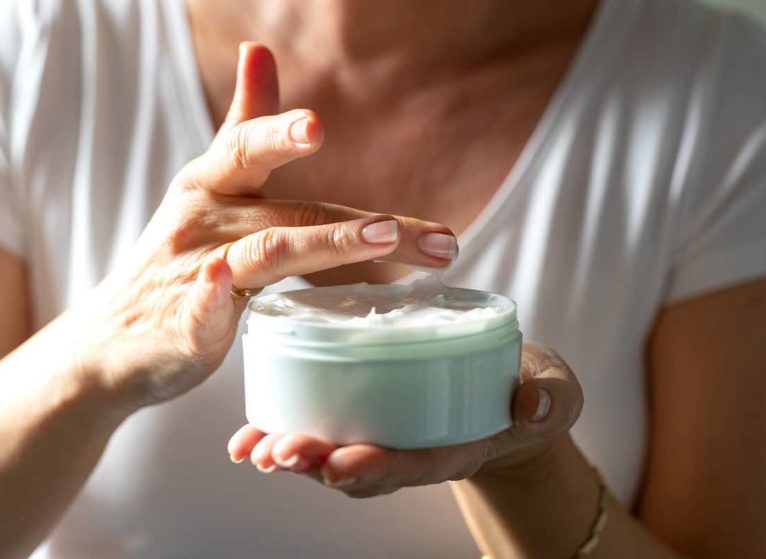You’re the queen of sunscreen. A pro shade-seeker and master of hats. But somehow, you still ended the day with a bad sunburn. Why? The explanation may be hiding in your medicine cabinet or lurking in your makeup bag.
What Is Photosensitivity?
Some people’s skin naturally burns more easily. To understand why, we have to take a closer look at photosensitivity. “Photosensitivity is the skin’s increased sensitivity to ultraviolet (UV) radiation, either from the sun or tanning beds,” says dermatologist Mark Russell, MD. “It can be affected by a person’s natural skin color. Some people, especially those with a fair complexion, are more sensitive to UV rays. But other things can make someone more sensitive to the sun.”
Autoimmune disorders like systemic lupus can affect the skin’s ability to shield itself from UV rays. Also, some genetic conditions make people more likely to sunburn. But, some of the most common causes of increased sun sensitivity are things you might not expect.
Medications Might Make a Bad Sunburn More Likely
A medication you take may increase your risk of getting a bad sunburn. The most common ones? Russell says they fall into these categories:
- Hypertension medications
- Antibiotics
- Antifungals
- Antivirals
- Non-steroidal anti-inflammatory drugs
- Diabetes medications
- Heart medications
- Cholesterol-lowering drugs
- Chemotherapy medications
Often, you’ll see a warning label on the bottle about limiting sun exposure or taking extra precautions while taking these medications. Don’t ignore it.
Skincare Products Can Increase Sunburn Risk Too
Ironically, many of the creams and serums we use to roll back the signs of sun damage and aging have ingredients that make you more likely to sunburn. Keep an eye out for these ingredients on the label:
- Alpha hydroxy acid (AHA)
These are natural plant- and animal-based acids. The most common are glycolic and lactic acid.
- Beta hydroxy acid (BHA)
Labels may list these as salicylic acid.
- Hydroquinone
You can find this skin-lightening agent in over-the-counter and prescription products.
- Retinol or other retinoids
Retinol is common in over-the-counter anti-aging products. Stronger retinoids are prescription-strength medications in acne and psoriasis treatments.
Best Ways to Avoid a Bad Sunburn
Protecting yourself from too much sun exposure is always a good idea. This is especially true if you’re taking medications or using skincare products that make your skin more sensitive to the sun’s rays. So be extra cautious to avoid a bad sunburn.
Follow Russell’s advice:
- Seek shade. Remember the sun’s rays are strongest from 10 a.m.-4 p.m.
- Wear protective clothing. This includes long-sleeved shirts, pants, and wide-brimmed hats. And don’t forget sunglasses.
- Apply a broad-spectrum, water-resistant sunscreen. It should be at least a 30 SPF. Reapply often.
- If your skincare includes any of the ingredients above, apply it at night.
- Near water, snow, or sand? Use extra caution because they reflect damaging rays of the sun, and increase your chance of a sunburn.
- Avoid tanning beds.
Is It a Mole or Skin Cancer?
Get suspicious spots checked by a UVA Health dermatologist.
1 Bad Sunburn Ups Your Risk for Skin Cancer
Sunburns aren’t just painful. They also increase your risk for skin cancer. “The more sunburns you have over your lifetime, the greater your risk for melanoma and other types of skin cancer,” says Russell.
One bad sunburn with blistering — or 5 less severe sunburns — doubles your chance of getting melanoma. This is the most serious type of skin cancer because it grows quickly and can spread to other organs.
Sunburn also speeds up the aging process. So all those serums and creams? They will only pay off if you limit sun exposure.


